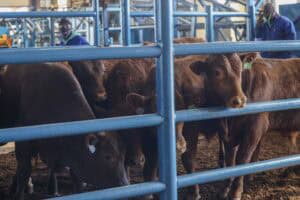'There is no reason why we shouldn't start developing our own vaccines. We have scientists. We have the human resources and expertise, we'll have the market'.

Dr Messeret Eshetu Shibeshi, an Immunisation Officer with the World Health Organisation (WHO), talked about the roadblocks affecting vaccine programs in Sub-Saharan Africa.
While there might be a demand for vaccines in many African countries, Dr Shibeshi said perceptions, misinformation and behaviour play a big role too.
“Rural communities believe the virus is only for city dwellers and rich people who travelled.”
Covid-19 vaccine road blocks
Effects of lockdown on African economy
One roadblock is the impact Covid-19 has on African countries’ economies, especially since multiple lockdowns have been implemented with devasting effects.
The effects of lockdown had a ripple effect on trade, tourism and the livelihood of millions of people. Moreover, lockdowns impacted families’ daily income.
Many have lost their jobs and “a majority of countries [in Africa] were driven into recession, resulting in high unemployment, increased poverty, inequalities and food security”, Dr Shibeshi said.
The pandemic might only be in its second year, but Dr Shibeshi says the impact may still be felt far into the future.
“I think the effect is continuing. We are observing it now, the effect is really felt now, and governments’ efforts [to roll out] stimulus packages have helped some countries”.
Private sector vaccination campaigns
When asked about the vaccination campaigns from the private sector, Dr Shibeshi commended the provisions put in place which enabled employees to continue working, “if they are protected”.
“In some countries, the private sector supported governments with the purchase of products, such as protective materials, shelter, even additional funding for vaccination mobile sites.”
“Also a good example: In South Africa, private care centres assisted the vaccination rollout. Those are the sort of contributions we appreciate”.
However, Dr Shibeshi said the WHO “cannot be satisfied because we could do better; the private sector could do better”.
Lessons from the pandemic
She said when citizens fall ill and are prescribed medication, the dosages “are taken willingly”. However, when it comes to preventing disease and receiving vaccines, people are more sceptical.
This scepticism stems from fear and misinformation, especially when the adverse effects of taking vaccines are exaggerated.
The scepticism persists, despite Africa’s “vast experience of vaccination campaigns.”
“We’ve been vaccinating millions within a week against measles, seconds polio against meningitis”.
Vaccination rollout wins
Dr Shibeshi said structures are in place to enable “good systematic governance”, as well as the means to educate companies, entrepreneurs and employers.
Communities have shown that they can “pull together” when required, and traditional leaders have done their part in assisting vaccination efforts.
ALSO READ: Traditional leaders and pastors lobby people to get their Covid jabs
Social networking also proved advantageous, however, more could still be done “because most of the inequity is not only because of supply but the reservation of our communities due to misinformation”.
“We have National Immunisation advisory groups – they came in very handy to advise our governments by providing appropriate recommendations, a step-by-step approach to really utilise vaccines”.
Final words: ‘Don’t wait for a pandemic’
Dr Shibeshi said Covid-19 “has exposed our health system – not only in Africa, even in the developed world”.
“You’ve seen how the health system was challenged, so we shouldn’t wait for pandemics.”
She said “preparedness and investment in the health system should be given high importance. Africa should develop vaccines.”
“There is no reason why we shouldn’t start developing our own vaccines. We have scientists. We have the human resources and expertise, we’ll have the market. But investment is required from our leaders.”
During the same address, Dr Shibeshi commended South Africa for spearheading vaccine development in Africa.
She said: “The technology transfer is going to help us, not only South Africa but the whole of Africa”.
READ MORE HERE: SA ‘spearheading’ vaccine development in Africa – expert
Support Local Journalism
Add The Citizen as a Preferred Source on Google and follow us on Google News to see more of our trusted reporting in Google News and Top Stories.






